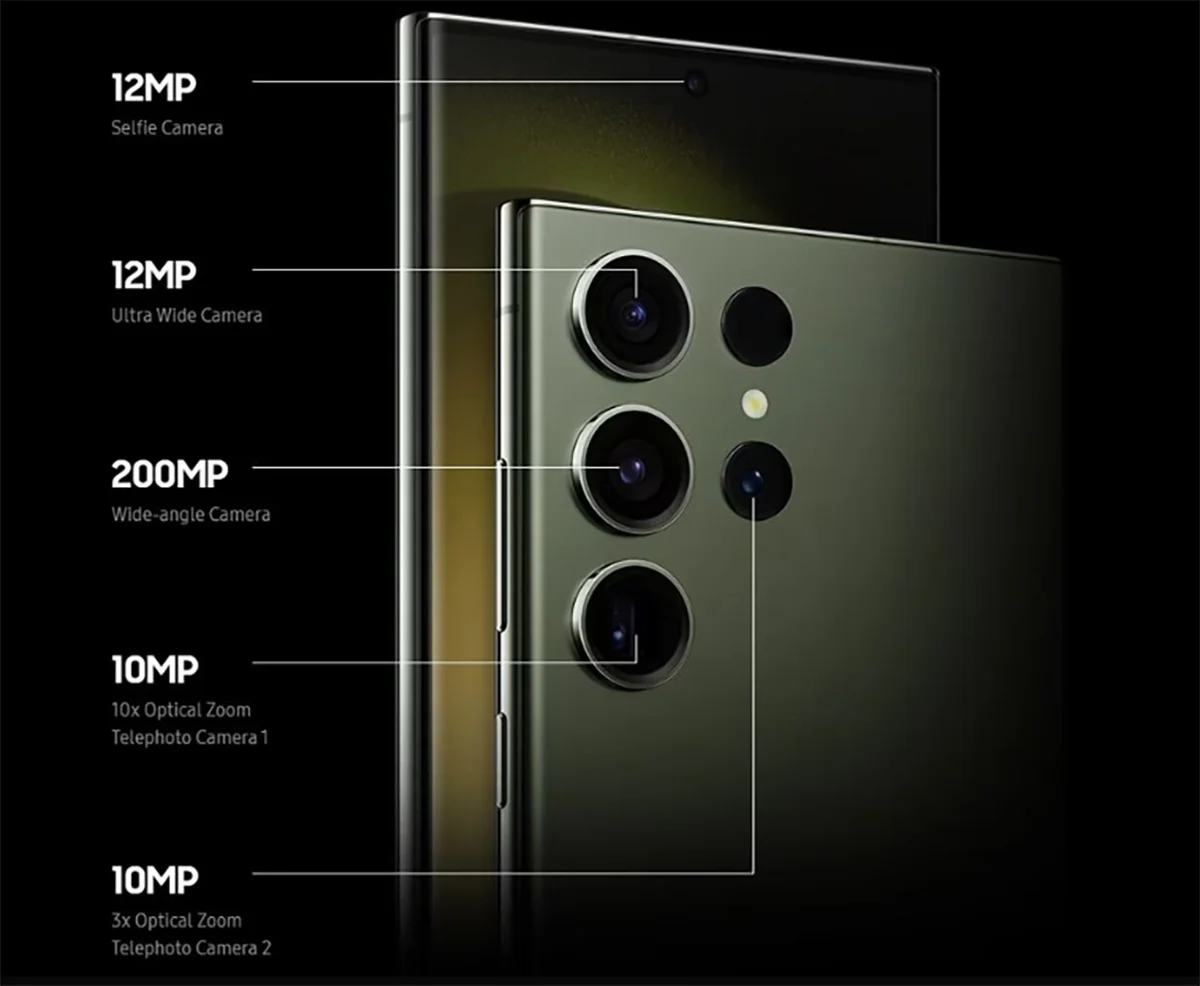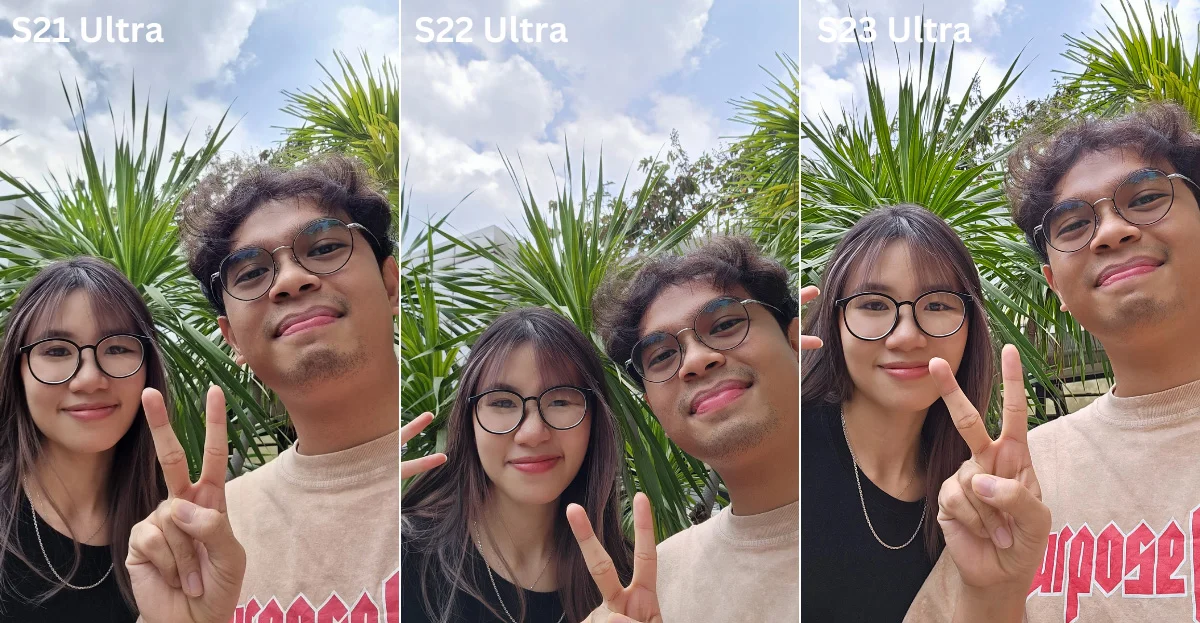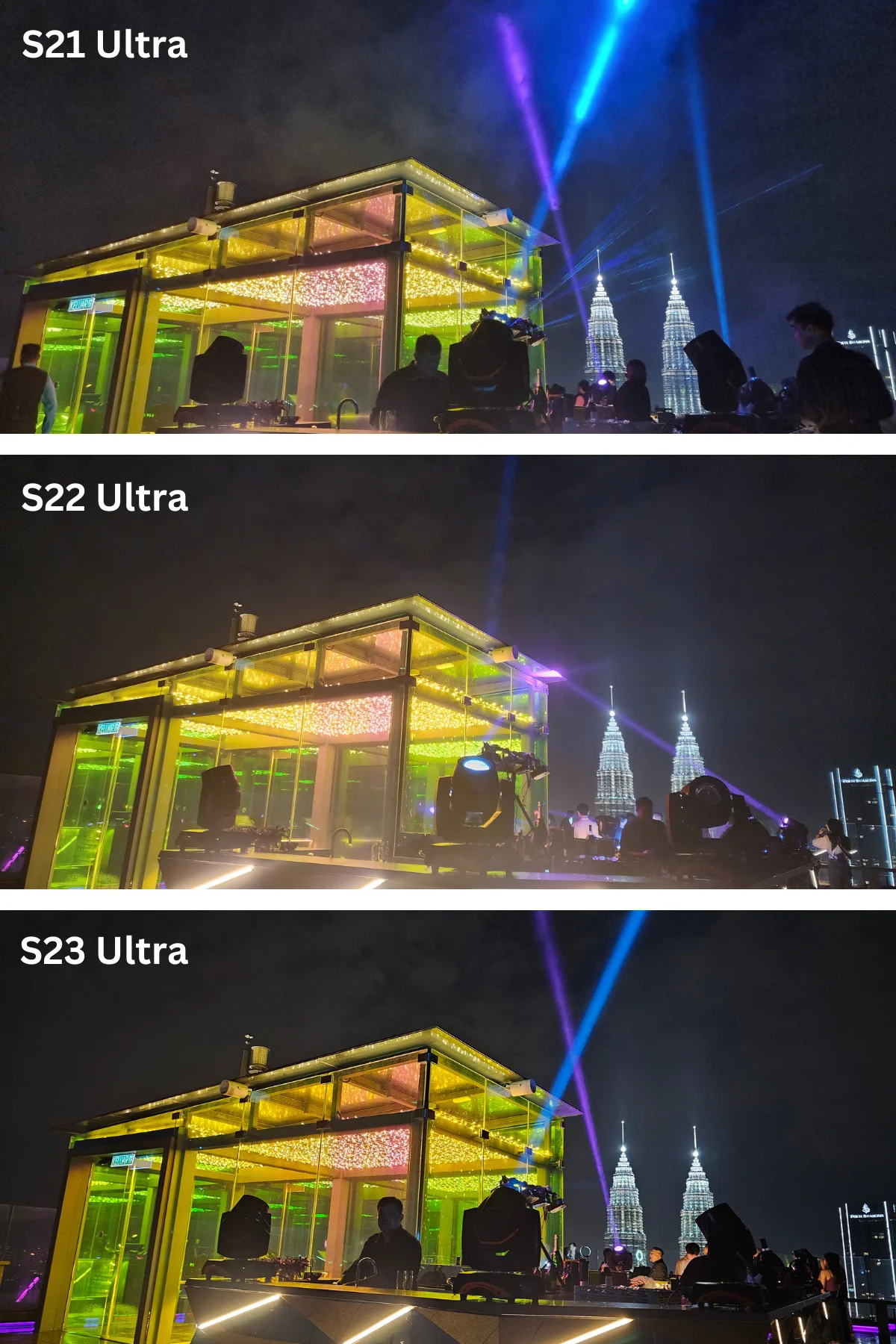To begin with, the Galaxy S23 Ultra is Samsung’s first flagship phone featuring a 200MP sensor combined with significant advancements in photography and filming. Additionally, the Galaxy comes with a Qualcomm Snapdragon 8 Gen 2 for Galaxy chip that offers the fastest Android speed, excellent battery life, and smart One UI 5.1 updates. In contrast to its predecessors, the 108MP-equipped Galaxy S21 Ultra and Galaxy S22 Ultra, the Galaxy S23 Ultra’s 200MP camera sensor is, of course, the major attraction here. With this phone, you can choose to shoot photos at a 12-megapixel, 50-megapixel or 200-megapixel resolution by adjusting the settings. However, if you leave it in automatic mode,the system will discard pixels based on the lighting environment to produce the best image. And honestly, we can go on and on about just how amazing and groundbreaking this phone’s camera is, but how about we just show you? To demonstrate how much Samsung has advanced in terms of photography, we decided to subject the Galaxy S21 Ultra, Galaxy S22 Ultra, and Galaxy S23 Ultra to a “test”:
Macro Photography (Zoom)
The Galaxy S23 Ultra’s back camera system is completed with a 12MP ultrawide sensor, two 10MP sensors with 10x and 3x optical zoom, and the new 200MP primary sensor. We used the 10x zoom mode to take close up pictures of a bleach washed tee to see just how much detail the cameras can capture. Macro shots captured using the Galaxy S22 Ultra looked somewhat white-washed as compared to the S21 Ultra. However, the Galaxy S22 Ultra’s macro photos offer a little bit better detail, even in low-light situations. Nevertheless when it comes to the Galaxy S23 Ultra, it shoots photographs with a warmer colour tone and details that really pop – the dynamics are handled quite well. From the imbalance of colour from the washed tee to even the fibres sticking out, everything was greatly captured.
Selfie
Samsung replaced the predecessors’ 40MP front-facing selfie cameras with a 12MP sensor for the Galaxy S23 Ultra. Despite the smaller size, the upgraded aspects come in the form of the brand’s Dual Pixel technology, which offers improvements for depth estimation in portrait photographs and low-light performance – even if the megapixel count is smaller. Super HDR for photographs and video is another feature Samsung added to the front camera. This enables the phone to take excellent pictures in both bright and low-light conditions. Both the Galaxy S21 Ultra and Galaxy S22 Ultra perform remarkably similarly when it comes to taking selfies. These phones include many details and pick real skin tones. The Galaxy S22 Ultra produces a brighter image of the face in this selfie example, but we value the Galaxy S23 Ultra selfie’s higher degree of detail and saturation.
Portrait Mode
Samsung made a point with the Galaxy S23 Ultra series presentation about improved depth mapping, with an oddly specific mention of spectacles. So, of course we had to try it out for ourselves. Undoubtedly, the Galaxy S22 Ultra takes better portrait-oriented photos than the Galaxy S21 Ultra. The subject and background are more clearly distinguished, and the phone can even identify hair strands. The Samsung Galaxy S23 Ultra can, nevertheless, take excellent portrait photographs with ease. The device’s autofocus performed admirably, successfully capturing the pivotal moment in the setting. Skin tones were represented appropriately and of course, it was able to preserve the scene’s original colour atmosphere. Additionally, the greens and blues were much more vibrant, and overall just better looking.
Night Landscape Scenery
With essentially 16 times more information than a conventional 12-megapixel smartphone photo, the Galaxy S23 Ultra’s night shots are magnificent to say the least. In low light situations, there is noticeably less distortion around the edges of the subject (the KLCC tower) with so much more detail on textures found on the buildings. Images taken with the Galaxy S21 Ultra in low-light situations show more noise and less details compared to photographs taken with the Galaxy S22 Ultra. Though the latter in comparison has a larger sensor and a quicker processor, which results in clearer photographs with greater sharpness, more details, and richer textures. However, lens flare is still a problem when it comes to the Galaxy S23 Ultra’s predecessors.
Contrasting Lights Night Imagery
The Galaxy S23 Ultra captured every detail in the frame’s highlights and shadows in low light because of its outstanding exposure and wide dynamic range. For this test, the phone won by a long shot. Even though Samsung chose to preserve part of the ambience created by warm, dim light sources when it came to colour, the Galaxy S23 Ultra still managed to produce a beautiful colour(s) overall in low light. And of course, the Galaxy S22 Ultra took photos that were generally clearer, brighter and crisper than the Galaxy S21 Ultra during our testing. Well, we’ve given you the facts and provided the photographic proof to back it up. We can now say the Galaxy S23 Ultra has without a doubt made major upgrades in terms of its camera. So, if you’re interested in upping your photography game then visit Samsung’s official website to find out more, as well as to purchase the brand’s most powerful flagship in both performance and photography today. But to make things even better, there is a ‘Buy 1 Free 1’ promo which you can now enjoy! All you have to do is trade in your Old Ultra and upgrade to the Galaxy S23 Ultra and receive an extra Galaxy S23! Find out more here. This article is brought to you by Samsung.






